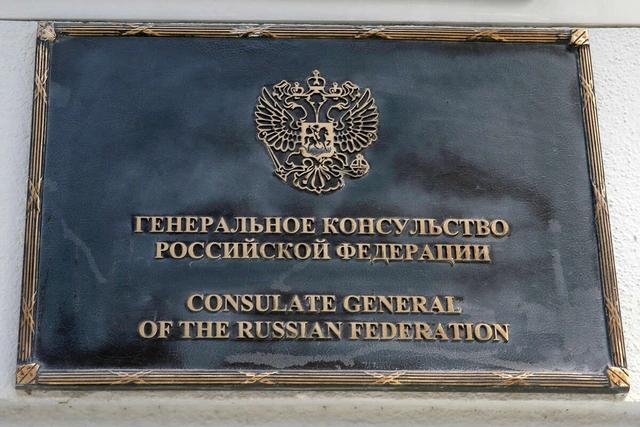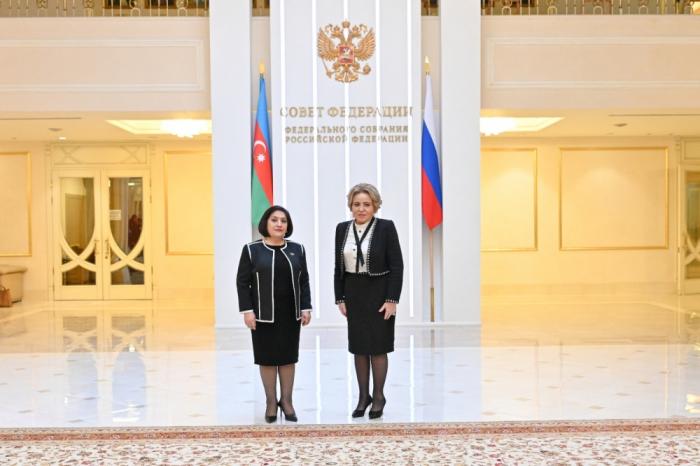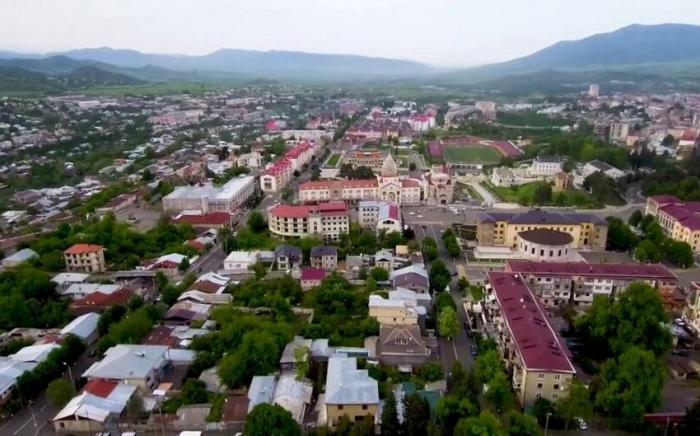Russia’s plan to open consulate in Azerbaijan’s Khankendi raises eyebrows Strategic implications & forecasts
Russia's recent announcement to establish a consulate general in Khankendi, the main city of Karabakh, has sparked significant debate and speculation among Azerbaijani political experts. This development was disclosed during a Moscow meeting between Grigory Karasin, head of the Federation Council's Committee on International Affairs, and a delegation from Azerbaijan's Milli Majlis (parliament), led by MP Samad Seyidov. The move comes amid a backdrop of delicate geopolitical maneuvers and raises several questions about Moscow’s strategic intentions in the South Caucasus.
The official announcement & context

Grigory Karasin’s statement emphasized the importance of the consulate, stating, "among our bilateral issues, I would mention the future opening of the consulate general in Khankendi. We plan to start preparatory work for this shortly and count on your support". He further noted that the goal is to open the consulate in 2024, asserting that this would "eliminate disparity in mutual consular presence".
The notion of opening a Russian consulate in Azerbaijan was initially floated in February 2023 by Valentina Matviyenko, Chairwoman of the Federation Council, during a meeting with Milli Majlis Speaker Sahiba Gafarova. At that time, the expectation was that the consulate would be established in Ganja, Azerbaijan's second-largest city. However, the sudden shift to Khankendi has raised eyebrows, considering the city is set to be resettled by former internally displaced persons (IDPs) and possibly by ethnic Azerbaijani refugees from Armenia.
Diplomatic practices & imbalances
Diplomatic norms dictate that consulates are typically opened in regions with significant economic ties or where the country’s citizens are densely populated. For instance, Azerbaijan has consulates in St. Petersburg and Yekaterinburg, catering to a large number of Azerbaijani expatriates in Russia. Conversely, Russia's diplomatic presence in Azerbaijan is currently limited to its embassy in Baku. This imbalance highlights the strategic value Moscow places on expanding its footprint in Azerbaijan.

However, Khankendi does not fit the usual criteria for establishing a consulate. The city lacks a significant population of Russian citizens and has no current economic significance. Additionally, the Russian military contingent previously stationed in neighboring Khojaly has been withdrawn. The move raises a fundamental question: why is Russia so intent on opening a consulate in this specific location?
Strategic implications
Reactions in Azerbaijan have been mixed, with some expressing outright skepticism, questioning why Azerbaijan has not pursued the establishment of its own consulate in Derbent, Russia, where a significant number of ethnic Azerbaijanis reside.
Several experts suggest that Russia’s move may be part of a broader strategy to reassert its influence in the Karabakh region, a region historically volatile. The geopolitical significance of Karabakh in Russian foreign policy cannot be overstated. By establishing a consulate in Khankendi, Russia could be aiming to regain a foothold in the region and maintain leverage over the ongoing peace processes and territorial disputes.
Political analysts in Azerbaijan are wary of this development. Some argue that the opening of a Russian consulate in Karabakh does not align with Azerbaijan’s interests.
One prominent Azerbaijani expert stated, "It is not right to open the Russian consular service in Karabakh without opening the Turkish consular service in Shusha. It seems that the Kremlin wants to return to Karabakh through the consular service and restore lost positions. This does not meet the interests of Azerbaijan".
Possible motives & forecasts
The Kremlin’s plan could be driven by several underlying motives.
Geopolitical leverage: Establishing a consulate in Khankendi could give Russia a strategic position to influence local politics and peace negotiations in Karabakh.
Maintaining regional influence: As Armenia and Azerbaijan continue to navigate their post-conflict reality, Russia may seek to maintain its historical role as a key power broker in the South Caucasus.
Balancing Turkish influence: Turkey’s increasing involvement in Azerbaijan, particularly in Shusha, may have prompted Russia to counterbalance this by establishing its own presence in a neighboring city.

Conclusion
Russia's announcement to open a consulate general in Khankendi is a strategic move that extends beyond mere diplomatic formalities. It reflects Moscow’s broader objectives of retaining influence in the South Caucasus, countering Turkish expansion, and positioning itself as an indispensable player in the region’s future.
While the official Azerbaijani response is pending, it is clear that this development will have significant implications for the region’s geopolitical landscape. The success and impact of this plan will largely depend on the unfolding dynamics between Russia, Azerbaijan, and other regional stakeholders in the coming months and years.








